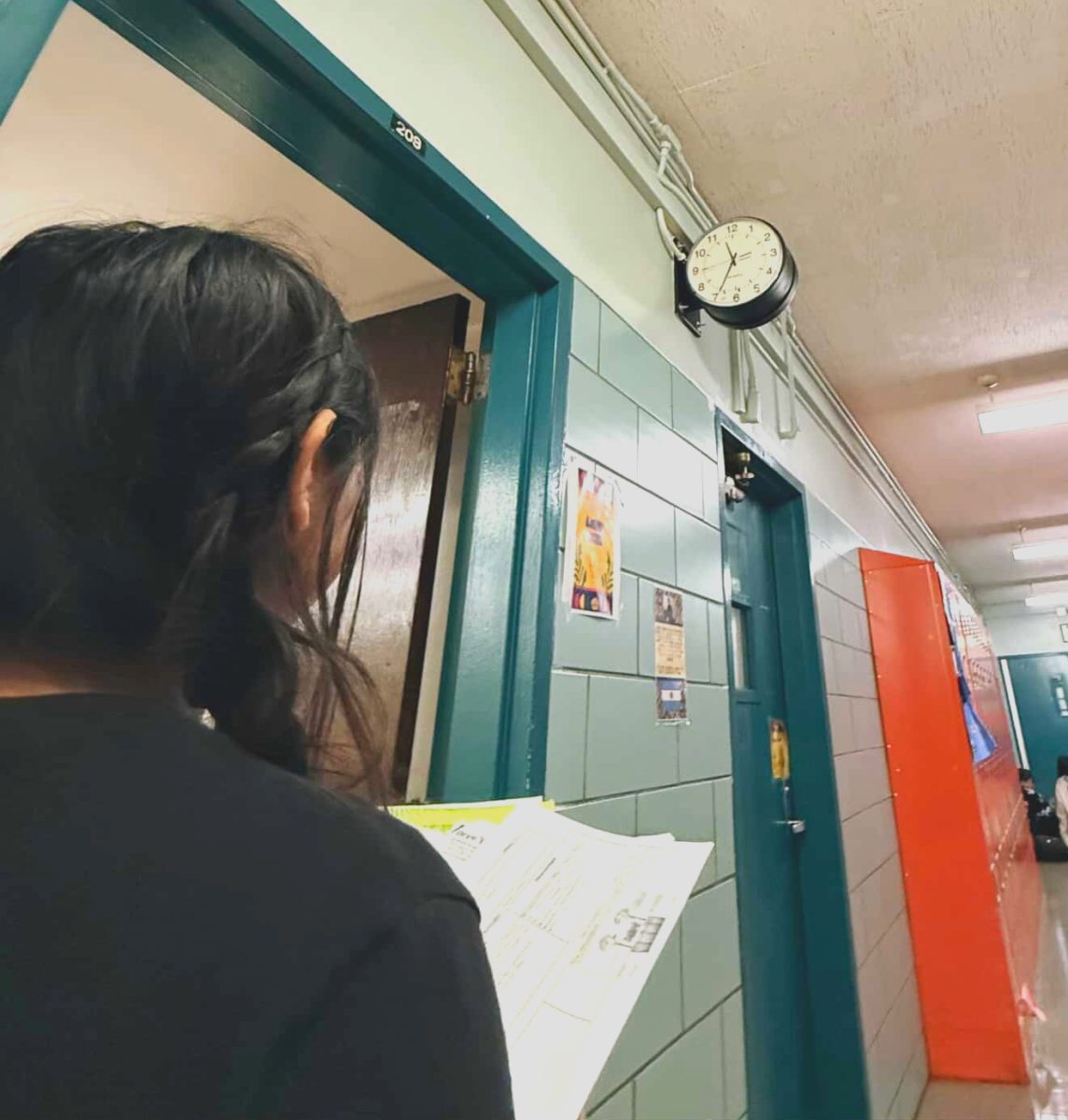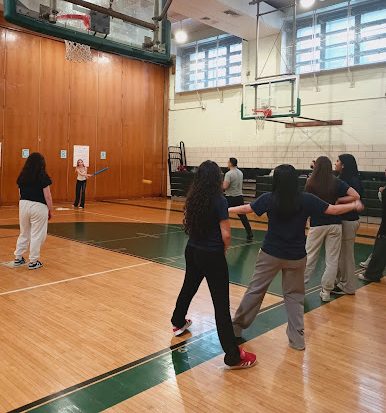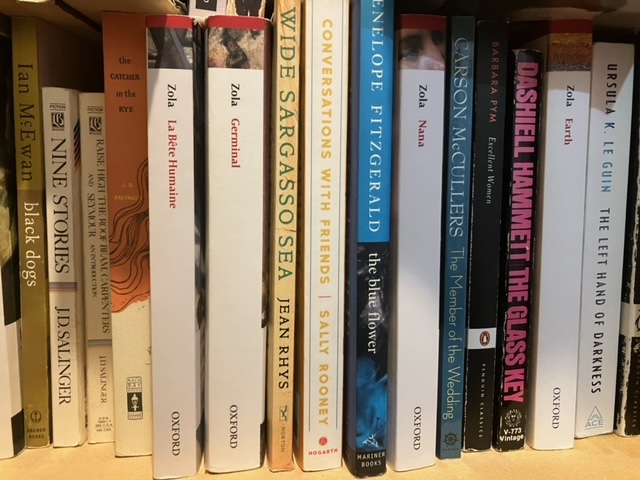The generally thought definition of a classic novel is a book that is old and difficult to read. Students often groan when told they are going to read a classic in English class. Instead, a more accurate definition would be: a book that altered the landscape of literature and/or the perception of the topic that it discusses.
A few examples that come to mind when one thinks of classic literature: The Great Gatsby by F. Scott Fitzgerald, To Kill A Mockingbird by Harper Lee, Of Mice and Men by John Steinbeck. However, classics are not necessarily the archaic, trudging reads that one usually thinks of. They can just as easily be fun and interesting, as well as insightful and beautiful.
One of the most celebrated and well-loved of the classics is Pride and Prejudice by Jane Austen. This novel follows the story of Elizabeth (Lizzy) Bennet and her family, particularly her older sister Jane, and their stories of finding romance.
The novel can be enjoyed as a dynamic love story but it also provides readers with a unique window into the world of women during the early 19th century. The feminist angle of the novel may seem subtle to modern readers but it humanizes female characters to an extent rarely seen in novels from this period. Lizzy has a strong personality that is not only accepted by her love interest, but is given as the reason he fell in love with her.
The novel explores complex relationships and ideas without being heavy or taking away from the entertainment of the story. Classic authors such as Jane Austen provide relatable, enjoyable reads while still producing stunning and interesting prose.
While Austen’s prose is beautiful, it can be difficult to comprehend if one is not familiar with writing style. However, many classic books are written with colloquial language such as Slaughterhouse-Five by Kurt Vonnegut. This novel follows the story of Billy Pilgrim and his experiences fighting for the Allies during World War II and his struggles grappling with PTSD following the war.
The novel is written in a conversational stream-of-consciousness style which allows the reader to fully experience the confused and disconcerted mind of Billy Pilgrim. Vonnegut’s ability to embody grueling, complicated topics with such conversational language makes the novel exceptionally personable, and that much more heart wrenching.
As with all of Vonnegut’s novels, Slaughterhouse-Five also uses humor to add an even more casual tone, juxtaposing the serious nature of the topic at hand. The addition of humor adds a layer of irony that is coated throughout the story as well as adding to the entertainment value of the novel.
Another major criticism of classic literature is that it is written predominantly by white men. While this is true about the majority of the classics canon, there are many examples of classic novels written by people belonging to marginalized communities. One of the most renowned examples is The Color Purple by Alice Walker. This tragic but inspiring novel explores the difficulties of being vulnerable through the story of Celie, a 14-year-old African American girl from Georgia. Walker conveys Celie’s admirable strength throughout the novel without dampening the suffering that she endures. Her Pulitzer Prize winning masterpiece is often pointed to as the symbol of diversity in the classic literature canon, however, this does not make up for the vast history of art made by people of color being undervalued and cast aside.
Enjoyable books are easy to come by but classic literature is unique in that it represents important moments in the history and development of literature as an art form. For example, the colloquial language of American author Mark Twain’s Adventures of Huckleberry Finn was the first of its kind when the book was published in 1884, however, this was not the main point of controversy surrounding the novel. Twain’s humanization of and sympathy towards the fugitive slave Jim, who the novel’s protagonist befriends, as well as the blatant criticism of slavery in the American South had a profound effect on the perception of African Americans in the South. Twain’s message about the violence inflicted upon Black people by the American South helped to turn literature into a field of social activism.
Most importantly, classic novels are loved. Classic novels didn’t become famous because literary scholars declared that a book is important, but because these books have profoundly impacted the lives of their readers. One example of such a classic is The Bell Jar by Sylvia Plath.
This novel uses a stream-of-consciousness style to detail Esther Greenwood’s struggles with identity as a young woman, the social norms she is forced to comply with, and how they eventually lead to her mental breakdown. Senior Ava Wolgamott said that “there are so many generations of young women who have read [The Bell Jar] and had it change the way that they perceive themselves and the world.”
Young people tend to reject classic literature as boring, tedious reading that has no value in their modern lives. AP Literature teacher John Roukis says that students often don’t “give classics a chance or consider that the themes and the characters may resonate with them.” However, every aspect of a character doesn’t need to be relatable in order for their overall arc to resonate with a reader. In fact, the specifics of a character will almost always differ from that of the reader, but this is what is important about literature. It shows that even if a character’s traits and personalities are opposite from the readers, their problems and struggles can be the same.
People throughout every culture, every society, and every time period have been struggling with the same few fundamental questions. The questions that young people today have about growing up and how to fit into society are the same ones that young people had one hundred years ago. This phenomenon is not only interesting, but comforting as it reminds us how universal our struggles are and, above all, that we are not alone in them.





























Margaret Fleck • Apr 10, 2024 at 10:04 am
My father taught me to read with a Bible story book when I was 5. I was afraid of him, but I learned to sound out words phonetically. When I was 8, I tried to understand Poe’s “The Gold Bug.” I was 9 when I read “Jane Eyre.” (I loved it.) I lacked the discipline to get placed in AP classes, but I read all the time. Reading gave me a place to go in my head. My imagination and reading helped me get through a life that was less than easy.
I am 72. I see a world that is deteriorating, ecologically, culturally, and socially.
I read about 300 to 500 pages a day: escapist superficial stuff, science, philosophy and classic literature. I think a lot. I mourn for what we could have been if we had been stronger, smarter, more loving to each other and animals.
I believe love makes life worth living.
But-if you can’t find love, read. Read everything. Read the old stuff that’s been around a hundred years or more. Read it all.
Get a pet if you can. Something that needs you. Look at trees, watch the squirrels, and listen to the birds. It will be gone sooner than you think.
Do as little harm as possible and be grateful for any good that comes your way.
Let • Apr 19, 2024 at 3:44 pm
I will! I recently joined a local book club and look forward to reading newer works, but I have several classics at Hine I haven’t read. I will be reading those soon. Thank you for all the wonderful suggestions.